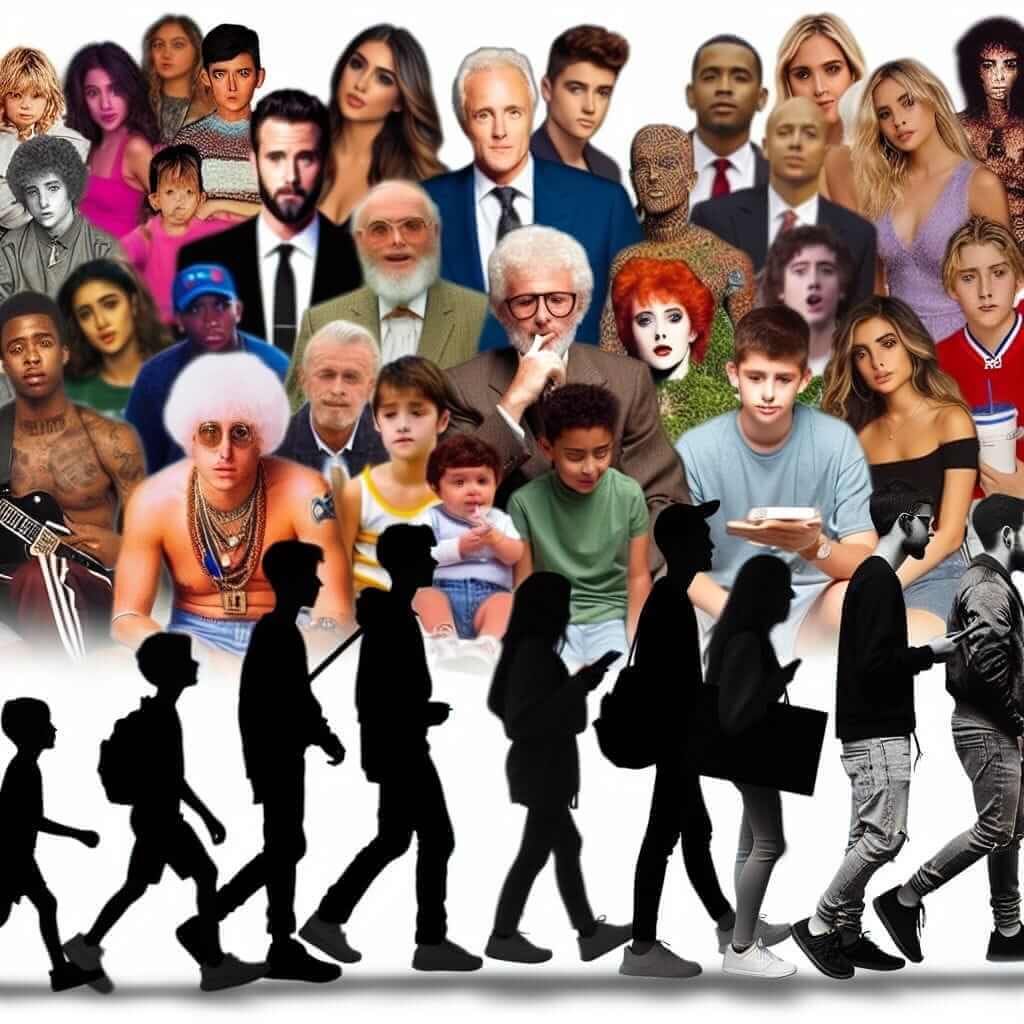Celebrity culture plays a significant role in today’s society, particularly impacting young people’s lives. The IELTS exam often features topics related to this influence, asking test-takers to analyze its various aspects. This article will explore common essay prompts related to “The influence of celebrity culture on youth,” provide a sample band 8 essay, and offer a detailed analysis of vocabulary and grammar for this topic.
Common IELTS Essay Prompts
Here are some potential IELTS essay prompts related to the influence of celebrity culture on youth:
- Many young people today idolize celebrities and try to emulate their lifestyles. What are the reasons for this phenomenon, and what impacts does it have on young people?
- Some argue that celebrity culture has a negative impact on young people, while others believe it can be a positive influence. Discuss both sides and give your own opinion.
- With the rise of social media, celebrities have become increasingly accessible to their fans. To what extent does this accessibility influence young people’s aspirations and values?
Sample Essay:
Prompt: Many young people today idolize celebrities and try to emulate their lifestyles. What are the reasons for this phenomenon, and what impacts does it have on young people?
Essay:
It is undeniable that celebrity culture pervades modern society, profoundly shaping the aspirations and behaviors of young people. From fashion choices to career paths, the influence of celebrities is palpable. This essay will delve into the reasons behind this phenomenon and analyze its multifaceted impacts on youth.
One primary reason for the idolization of celebrities is the pervasive nature of mass media. Through television, magazines, and social media, young people are constantly bombarded with images of glamorous, seemingly perfect lives led by these public figures. This constant exposure can create unrealistic expectations and lead to a sense of inadequacy among youth, who may struggle to reconcile their own lives with the manufactured perfection portrayed online.
Furthermore, celebrities often endorse products and lifestyles, consciously or subconsciously promoting consumerism among their young audience. The desire to own the same clothes, gadgets, or experiences as their idols can push young people towards materialistic values and create a sense of pressure to fit in. This can be particularly detrimental for those from less privileged backgrounds, potentially leading to feelings of social exclusion and financial strain.

However, it is important to acknowledge that celebrity influence is not always negative. Role models who advocate for important social causes or showcase exceptional talent can inspire young people to pursue their passions and contribute positively to society. For instance, athletes overcoming adversity or musicians using their platform to raise awareness about critical issues can have a powerful and positive impact on impressionable young minds.
In conclusion, while the idolization of celebrities can lead to unrealistic expectations, consumerism, and a skewed sense of reality, it can also inspire, motivate, and promote positive social change. It is crucial for young people to cultivate critical thinking skills, allowing them to discern between genuine role models and manufactured personas, ultimately shaping their own values and aspirations. (Word count: 297)
Notes on the Essay:
Structure: The essay follows a clear structure, addressing both parts of the prompt. It begins with an introduction, develops two body paragraphs analyzing the reasons and impacts, and concludes by summarizing the main points and offering a balanced perspective.
Vocabulary: The essay utilizes a range of sophisticated vocabulary related to the topic, such as “pervasive,” “palpable,” “consumerism,” and “detrimental.”
Grammar: The essay demonstrates a strong command of grammar and syntax, employing complex sentence structures and a variety of grammatical constructions.
Vocabulary Focus:
- Idolize (verb): To admire or love someone very much, often to an excessive degree. ( /ˈaɪdəˌlaɪz/ )
- Emulate (verb): To try to be like someone or something else, especially by copying their behavior or style. ( /ˈemjəˌleɪt/ )
- Pervasive (adjective): Existing or spreading throughout an area or group of people. ( /pərˈveɪsɪv/ )
- Palpable (adjective): So obvious that it can easily be seen or known, or (of a feeling) so strong that it seems as if it can be touched. ( /ˈpælpəbəl/ )
- Consumerism (noun): The situation in which too much attention is given to buying and owning things. ( /kənˈsumərɪzəm/ )
- Detrimental (adjective): Causing harm or damage. ( /ˌdetrɪˈmentəl/ )
- Advocate (verb): To publicly support or suggest an idea, development, or way of doing something. ( /ˈæd.və.keɪt/ )
- Impressionable (adjective): Easily influenced by other people, especially because of being young or having had little experience. ( /ɪmˈpreʃənəbəl/ )
- Discern (verb): To see, recognize, or understand something that is not clear. ( /dɪˈsɜːrn/ )
- Manufactured (adjective): Produced artificially, usually on a large scale. ( /ˌmæn.jəˈfæk.tʃɚd/ )
Conclusion:
The influence of celebrity culture on youth is a complex issue with both positive and negative aspects. By familiarizing yourself with relevant vocabulary, grammar, and argumentation techniques, you can confidently tackle IELTS writing tasks related to this topic. Remember to analyze the prompt carefully, develop a clear and coherent essay structure, and support your arguments with relevant examples and analysis.